Who do you think they (foreign observers) are?
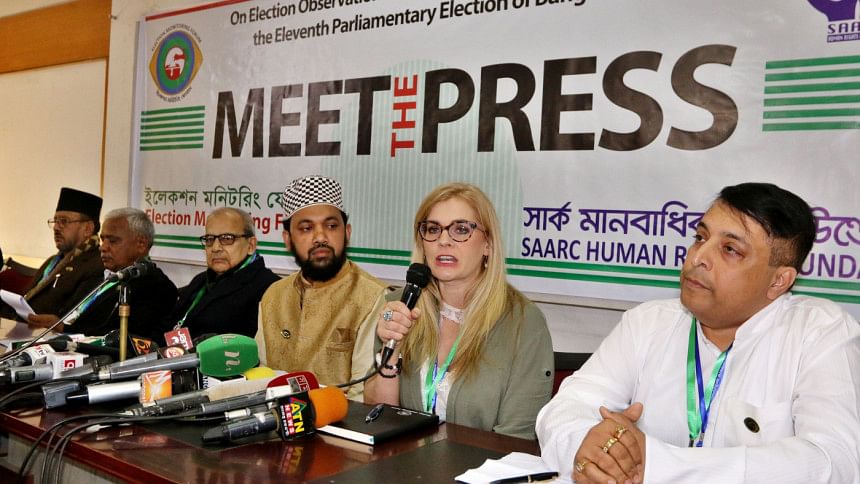
The highly publicised appearance of a new poll monitoring group appears to have impressed many of us in Bangladesh with their high-level interactions with the Election Commission, ministers and a few other politicians. They were joined by quite a few foreigners, too, who expressed their full confidence in the EC's ability to organise fair elections. It was probably the current EC's first formal meeting on the issue of election monitoring with some "to be monitors." Though Chief Election Commissioner (CEC) Kazi Habibul Awal and four other commissioners spent about an hour in a meeting with those local and foreign so-called observers, there was no communique or statement issued on the EC's behalf.
Unfortunately, colleagues in the media who covered the event didn't tell us anything beyond what the chief of the local monitoring organisation and his foreign companions told them. As far as we know, the EC is yet to announce the list of the poll monitoring organisations who received their accreditation for the next general election. The EC website has only one list containing 118 civil society organisations (CSO), which dates back to 2018, and the Election Monitoring Forum (EMF) is not one of them. But, interestingly, EMF chief Abed Ali's name is listed as the secretary-general of Saarc Human Rights Foundation (SHRF).
EMF and SHRF are two names that should ring a bell with readers as they hit the headlines in local and foreign media in 2018 when some so-called international observers brought in by these two groups certified the much discredited December 30 parliamentary election as not only free, fair and peaceful, but a "glowing example for other democratic countries." Few weeks later, some of those observers regretted making that statement. One of the foreign observers, Tanya Foster, who visited Bangladesh with her daughter, told Reuters that they had never acted as international observers to a national election before.
The EMF website doesn't have any information about its history, such as when it was founded, whether it is a registered non-government organisation, and how or who finances their activities. However, it lists former Election Commissioner Md Shahnewaz as a director and another former Election Commissioner Brig Gen (retd) Shahadat Hossain Chowdhury as a special adviser. Interestingly, EMF's name first appeared in relation to the election that was held under Brig Gen Chowdhury's commission, though it was not accredited for election observation, but somehow associated with SHRF in bringing in foreign monitors.
One other crucial piece of information that emerged about the SHRF following the 2018 election monitoring report was that it had nothing to do with the South Asian regional grouping Saarc, but used their logo without authorisation. The foundation's advisory board also had prominent members of the ruling coalition, including Awami League MP Obaidul Muqtadir Chowdhury as its president. The Facebook page of Prof Abed Ali, now president of the EMF and secretary-general of SHRF, also contains a good number of photographs depicting his close association with the ruling party.
It is, therefore, quite intriguing as to why the EC felt it necessary to hold a meeting with an organisation that does not have a clean history of poll monitoring. How can an organisation having well-publicised political links qualify for such a preferential treatment? Did the presence of two former election commissioners on the EMF board somehow influence the current EC to entertain them well before finalising the observers' list? Can a local observer group bring in foreigners for poll monitoring bypassing the EC, who alone has the legal authority to scrutinise and approve international monitors?
According to Prothom Alo, Abed Ali now admits that two of the four foreigners are journalists and therefore can be termed as observers. However, the EC has a very different accreditation process for foreign journalists.
There are published guidelines for election observation (international observers) on the EC website posted in November 2018, presumably still valid, clearly providing the route for applying and getting approval for all foreigners willing to monitor our elections. The guidelines also include a code of conduct, which states, "Maintain strict political impartiality." Does the EC now see those so-called international observers' partisan comments on a very divisive political issue made to the media as violation of the code, and will it take some visible action against them, such as debarring them from poll observation?
The importance of election monitoring can't be overemphasised. Many of us think it only happens in Third World countries like ours. But that's not true. Both local and international observers regularly observe elections in the United States. Each state of the US has its own law regulating observers, but one thing is essential and common, which is political neutrality of the observers. The Organization of Security and Co-operation in Europe (OSCE) routinely sends observer missions to the US during general and midterm elections following invitations.
Unfortunately, due to the nature of our politics and the lack of mutual trust and respect among major contending parties, the issue of election observation has also become an issue of contention and mistrust, which in turn has made the role of international observers even more crucial. With gradual weakening of democracy and rise of authoritarianism, the ruling party seems, at least in some powerful quarters in the government, to have opted to follow the tactics deployed by some other autocratic regimes around the world.
These tricks have been identified by the European Parliament's Subcommittee on Human Rights (DROI), which it describes as "a mock-compliance strategy" to achieve external validation. Their tactics include: gatekeeper tactics with highly regulated accreditation schemes to avoid larger and renowned professional observers; observation schemes including national/regional/international "fake observers"; investment in international public relations firms to bolster the international image; and ensuring sympathetic observers from other countries via bilateral parliamentary bodies.
Their observation that the first two techniques have become widespread among all autocratic regimes can easily be drawn into our 2018 experience. One may recount the example of ANFREL, Asia's largest and most credible observer organisation, which had to abandon their Bangladesh monitoring mission owing to visa and accreditation issues. The story of SHRF hosting foreign observers is no different from the second tactic listed by the DROI.
Recognising the crucial role international observers can play in validating genuine elections, more than 20 leading international and regional organisations and institutions have formulated and endorsed a declaration of principles for international election observation and a code of conduct for international election observers. It has been in force since 2005, and any individual or organisation that does not follow this code can't be considered as an international observer.
Article 11 of the declaration reads, "A decision by any organisation to organise an international election observation mission or to explore the possibility of organising an observation mission does not imply that the organisation necessarily deems the election process in the country holding the elections to be credible. An organisation should not send an international election observation mission to a country under conditions that make it likely that its presence will be interpreted as giving legitimacy to a clearly undemocratic electoral process, and international election observation missions in any such circumstance should make public statements to ensure that their presence does not imply such legitimacy." Shouldn't we take note of these universally accepted principles and codes before calling anyone an international observer?
Kamal Ahmed is an independent journalist. His Twitter handle is @ahmedka1

 For all latest news, follow The Daily Star's Google News channel.
For all latest news, follow The Daily Star's Google News channel. 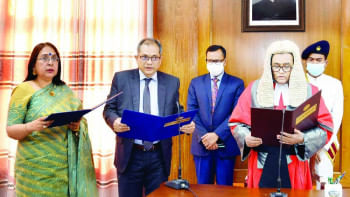
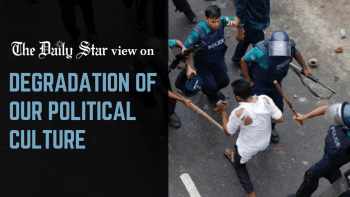
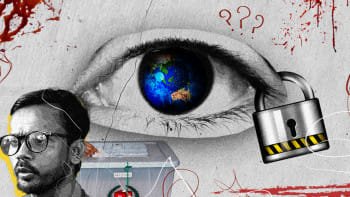



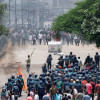
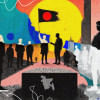

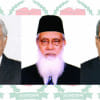


Comments